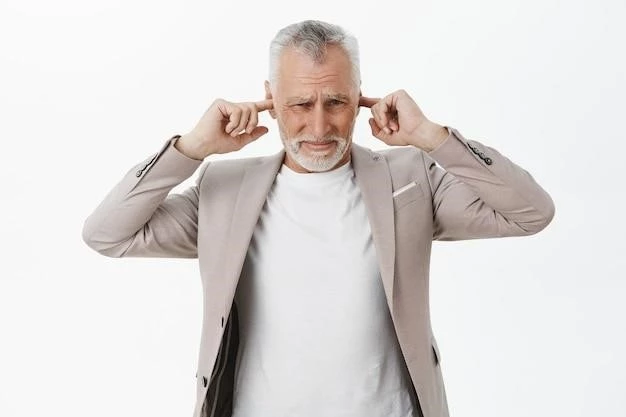Introduction
Presbycusis refers to bilateral age-related hearing loss, becoming noticeable around age 60 and progressing slowly. The diagnosis can be confirmed with audiometry;
Definition of Presbycusis
Presbycusis, also known as age-related hearing loss, is a bilateral sensorineural impairment affecting older individuals. This condition results in a gradual decline in hearing acuity and difficulty understanding speech, predominantly affecting high-frequency sounds. It is a complex and progressive disorder that significantly impacts the quality of life of those affected.
The prevalence of Presbycusis is significant among the elderly population, impacting their ability to communicate effectively and participate in daily activities. Age-related hearing loss can lead to social isolation, reduced quality of life, and emotional consequences. Understanding the impact of Presbycusis is crucial for providing appropriate support and interventions to improve the well-being of affected individuals.
Prevalence and Impact
Presbycusis, also known as age-related hearing loss, is a common condition affecting older individuals, leading to communication difficulties and social isolation due to decreased hearing acuity.
Age-Related Factors
Presbycusis primarily stems from age-related degeneration of the inner ear structures, leading to bilateral sensorineural hearing loss; As individuals grow older, gradual changes in the cochlea and auditory pathways contribute to the onset and progression of presbycusis. Factors such as genetic predisposition, environmental noise exposure, and other health conditions can also play a role in the development of age-related hearing impairment.
Genetic Predisposition
Genetic predisposition can contribute to the development of Presbycusis, influencing susceptibility to age-related hearing loss. Variations in specific genes involved in auditory function may increase the likelihood of experiencing sensorineural impairments as individuals age. Understanding the genetic factors associated with Presbycusis can provide insights into personalized management strategies for individuals at risk.
Environmental Noise Exposure
Environmental noise exposure can play a significant role in the development of Presbycusis. Prolonged exposure to loud noises over time can lead to damage to the auditory system, contributing to age-related hearing loss. It is essential to minimize exposure to high levels of noise to reduce the risk of hearing impairment associated with environmental factors.
Symptoms of Presbycusis
Age-related hearing loss or Presbycusis typically presents with gradual hearing loss, difficulty understanding speech, and the perception of ringing sounds in the ears known as tinnitus.
Gradual Hearing Loss
Presbycusis typically manifests as a gradual decline in hearing ability, especially high-frequency sounds, impacting communication and daily activities. Age-related changes in the cochlea and auditory pathways contribute to this progressive hearing impairment experienced by older individuals.
Difficulty Understanding Speech
Individuals with Presbycusis may experience challenges in understanding speech, especially in noisy environments or when conversing with multiple individuals. This difficulty arises due to the gradual decline in hearing acuity, particularly affecting the ability to discriminate speech sounds and comprehend conversations effectively.
Tinnitus
Tinnitus, a common symptom of Presbycusis, refers to the perception of ringing, buzzing, or humming sounds in the ears without an external source. In individuals with Presbycusis, tinnitus can coexist with hearing loss and impact overall auditory perception. Understanding and managing tinnitus in the context of Presbycusis is essential for improving the quality of life for affected individuals.
Diagnosis and Screening
Presbycusis is typically diagnosed through audiometry testing, which assesses hearing acuity. A collaborative care approach involving healthcare professionals is essential for accurate diagnosis and personalized treatment planning.
Audiometry Testing
Audiometry testing is vital in the diagnosis of Presbycusis, enabling healthcare providers to assess hearing acuity accurately. By measuring an individual’s hearing thresholds, audiometry helps identify the extent and nature of age-related hearing loss, facilitating appropriate intervention strategies for managing Presbycusis.
Collaborative Care Approach
A collaborative care approach involving healthcare professionals is essential in managing Presbycusis. By integrating expertise from audiologists, otolaryngologists, and other specialists, individuals with age-related hearing loss can receive comprehensive evaluations, personalized treatment plans, and ongoing support to address their unique needs and enhance their quality of life.
Treatment Options
Managing Presbycusis includes options like hearing aids, cochlear implants, and communication strategies to improve quality of life for individuals experiencing age-related hearing loss.
Hearing Aids
Hearing aids are a common intervention for Presbycusis, helping individuals enhance their hearing acuity and improve communication. These devices amplify sound and can be tailored to the individual’s specific hearing needs, providing significant benefits for individuals experiencing age-related hearing loss.
Cochlear Implants
Cochlear implants are an effective solution for individuals with Presbycusis who may not benefit from hearing aids. These surgically implanted devices stimulate the auditory nerve directly, bypassing damaged inner ear structures to improve hearing function. Cochlear implants can significantly enhance speech perception and quality of life for individuals with severe age-related hearing loss.
Communication Strategies
Implementing effective communication strategies is essential for individuals with Presbycusis to navigate social interactions and daily activities. Techniques such as face-to-face conversations, minimizing background noise, and using visual cues can enhance communication effectiveness and improve comprehension for individuals experiencing age-related hearing loss.
Prevention of Presbycusis
To prevent Presbycusis, individuals can adopt noise protection measures and maintain healthy lifestyle practices to reduce the risk of age-related hearing loss. Implementing these strategies can help preserve hearing function and minimize the impact of Presbycusis on quality of life.
Noise Protection Measures
Implementing noise protection measures is crucial in preventing Presbycusis by minimizing exposure to loud sounds that can contribute to age-related hearing loss. Utilizing hearing protection devices and avoiding prolonged exposure to high noise levels are effective strategies to protect and preserve hearing function as individuals age.
Healthy Lifestyle Practices
Adopting healthy lifestyle practices, such as maintaining a balanced diet, staying physically active, avoiding smoking, and managing chronic conditions like diabetes and cardiovascular issues, can contribute to overall well-being and potentially reduce the risk of developing Presbycusis. Additionally, regular exercise and cardiovascular health may positively impact ear health and mitigate age-related hearing loss.
Research and Recent Advances
Studies on Presbycusis focus on understanding the factors contributing to age-related hearing loss and technological innovations in hearing loss research to improve diagnostic and treatment approaches for individuals affected by this condition.
Studies on Presbycusis
Research on Presbycusis focuses on understanding age-related hearing loss factors and exploring innovative technological advancements in hearing loss management and treatment approaches to enhance outcomes for individuals affected by this condition.
Technological Innovations in Hearing Loss
Recent technological advancements in the management of Presbycusis include innovative approaches like digital hearing aids, personalized sound amplification devices, and assistive listening systems. These technologies aim to enhance hearing acuity and improve communication outcomes for individuals with age-related hearing loss, offering tailored solutions to address their specific hearing needs.

Impact on Quality of Life
Presbycusis can have significant social and emotional consequences, impacting an individual’s ability to communicate effectively and leading to feelings of isolation. To cope with these challenges, adopting strategies for managing the impact of hearing loss is essential for improving the overall quality of life for individuals with Presbycusis.
Social and Emotional Consequences
Experiencing Presbycusis can lead to social isolation and emotional distress due to communication difficulties and the impact on daily interactions. It is essential to address these consequences to support the well-being of individuals with age-related hearing loss.
Strategies for Coping
Implementing effective coping strategies is vital for individuals dealing with the social and emotional repercussions of Presbycusis. Utilizing communication techniques, seeking support from loved ones and professionals, and engaging in activities that enhance overall well-being can help individuals navigate the challenges posed by age-related hearing loss.

Management in Healthcare Settings
A multidisciplinary team approach involving healthcare professionals is crucial in the effective management of Presbycusis. Patient education and support are essential components of delivering comprehensive care to individuals with age-related hearing loss.
Multidisciplinary Team Approach
Implementing a multidisciplinary team approach in healthcare settings is essential for managing Presbycusis effectively. By combining the expertise of audiologists, otolaryngologists, and other specialists, individuals with age-related hearing loss can receive comprehensive care, leading to improved outcomes and quality of life.
Patient Education and Support
Based on the most recent information available, Presbycusis, also known as age-related hearing loss, is a common condition among the elderly, impacting their ability to communicate effectively and participate in daily activities. Age-related hearing loss can lead to social isolation, reduced quality of life, and emotional consequences. Understanding the impact of Presbycusis is crucial for providing appropriate support and interventions to improve the well-being of affected individuals.
